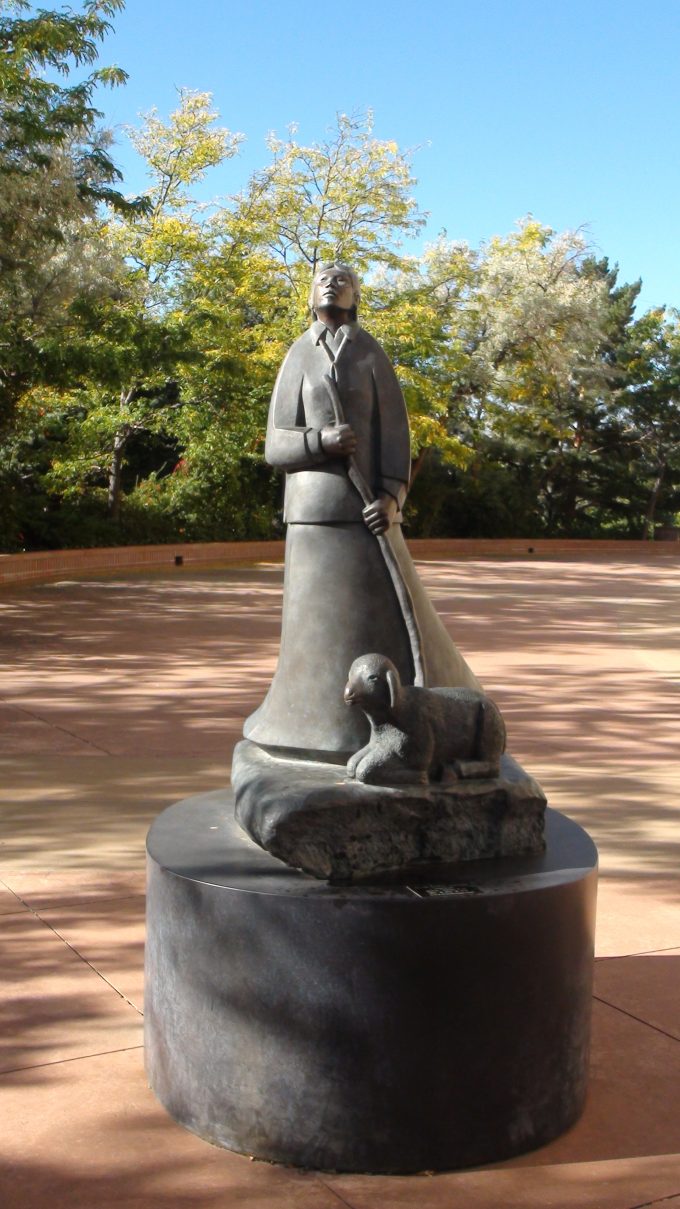
Tuesday, 11 December 2018
For if He were on earth, He would not be a priest, since there are priests who offer the gifts according to the law; Hebrews 8:4
Again, the author begins with “For.” One thought builds upon the next to establish his case. He has just stated that the purpose of a priest is “to offer both gifts and sacrifices.” He then said, based on that thought, that it is “necessary that this One also have something to offer.” What he is saying concerning the Levitical priesthood is that they, in fact, had something to offer. This begins to be realized with the words, “For if He were on earth.”
The “He” is referring to Jesus. Jesus was obviously here on earth, so the author isn’t talking as if His incarnation didn’t really occur. Rather, what did occur, and which is the focus of the author’s words now, is speaking about the earthly sanctuary of the Old Covenant. He is not concerned with any other religions which also conduct priestly functions, as if “on earth” was speaking of whatever religion man conjures up. Rather, his words are directed to only that which the Lord established. Under the Old Covenant, which has been seen to be a type of that which is in heaven and which will be seen explicitly in verse 8:5, Jesus “would not be a priest.”
The earthly sanctuary was designated specifically for the priestly line of Aaron. Further, the earthly sanctuary had specific gifts and sacrifices meticulously prescribed for its service. The types of gifts and sacrifices, how to offer them, when to offer them, what to do with each and every part of them after they have been sacrificed, etc. have all been minutely detailed within the law itself. Everything necessary to fulfill the Lord’s will under the Old Covenant is provided through the words of the covenant itself. This is why the author continues with the words, “since there are priests who offer the gifts according to the law.”
There were priests according to the law, and these priests offered the gifts mandated by the law. Further, they offered them according to the law. Nothing is left for another to come in and fulfill a priestly task which was lacking. Every part of the system, upon which the Levitical priesthood was established, is carefully detailed in the written words of instruction found in the law itself.
This specificity of those details goes on for pages and pages (and pages!) in the Law of Moses, covering every possible situation. The priest then could follow these procedures exactingly. If Jesus’ ministry was only an earthly ministry, it would be a false one. The Levites already handled what was prescribed in the law at the place God chose for the priestly ministry of Israel.
Life application: If Jesus’ ministry is a valid one, as it is shown to be based on the explanation of the previous chapters, and if that ministry is not of this earth, then it must be a heavenly ministry. If the earthly ministry of the Levitical priesthood dealt with earthly things, then the heavenly ministry of Christ Jesus must deal with spiritual things. The earthly things are already handled by the Old Covenant, and they were ineffective for bringing man to a restored relationship with God. As this is so, and as the ministry of Christ is able to do this, then why (why on earth!) would anyone want to go back to a law which was incapable of restoring us to God. Think it through. What is earthly is 1) temporary, 2) ineffective, and 3) annulled in Christ. Stay far away from anyone who would ask you to return to precepts of such a failed system. Stand on the grace of Jesus Christ alone for your reconciliation to God the Father.
Heavenly Father, it is with thanks and gratitude that our sacrifice came not in the sacrificial system at an earthly sanctuary, and through the blood of bulls and goats. Instead, it came through the life of the precious Lamb of God, our Lord Jesus. We look to His glorious work and know that His greater ministry is sufficient to cover all our transgressions. Glory and honor to You! Amen.
